Support strong Canadian climate journalism for 2025
Traffic grinds to a crawl on the dusty highway through Casillas, a small city in the Guatemalan Department of Santa Rosa, roughly three hours southeast of the capital.
Even on a busy work day, no vehicle may pass until the peaceful resistance stationed there has determined that it is not affiliated with or carrying supplies to the nearby Escobal silver mine, owned by Canada’s Tahoe Resources.
It’s a makeshift blockade marked by canvas signs attached to tilted power poles, demanding justice for Indigenous people as they flap in the wind. The project threatens land, water and local agriculture, argue members of the resistance, who patrol the road in shifts.
“We are willing to give our lives for Mother Earth and the children of the future,” Bernabe Rivas Ceballos told journalists, philanthropists and activists visiting the blockade on Oct. 26, 2017.
“We hold the company responsible for all the conflict they have caused in our communities of Santa Rosa. We can’t allow that invasion…We are willing to win or die.”
Seven out of eight municipalities near the Escobal mine have formally opposed it in local polls, and since 2015, at least five of their mayors have refused royalty payments from Minera San Rafael — a subsidiary of Tahoe Resources charged with the mine’s operation.
The project has been on hold since last summer over Indigenous consultation concerns, and just last month, hit a new snag as Guatemala’s Constitutional Court prolonged that suspension further with demands for new information and evidence. It's a decision that sent more than 2,000 Indigenous Xinka people marching through the streets of Guatemala City last week, demanding permanent closure of the mine.
The delays have been costly for Tahoe Resources, which suffered an $18 million loss in the fourth quarter of 2017, largely attributed to Escobal’s suspension. More than a quarter of Minera San Rafael’s 1,030 staff have already been laid off, and Tahoe has confirmed that more layoffs are on the way as the court examines whether the mine’s operating license is legal.
The Escobal mine controversy is one of several surrounding a variety of Canadian resource companies that operate abroad. Over the last 10 years, they have prompted a wave of activist pressure that just this year, resulted in federal government action.
In January, Canada's International Trade Minister François-Philippe Champagne introduced some details of his plan to create of a new watchdog with a mandate to investigate allegations of abuse in the foreign activities of Canadian companies. Tahoe's Escobal mine could be among those it is asked to review.
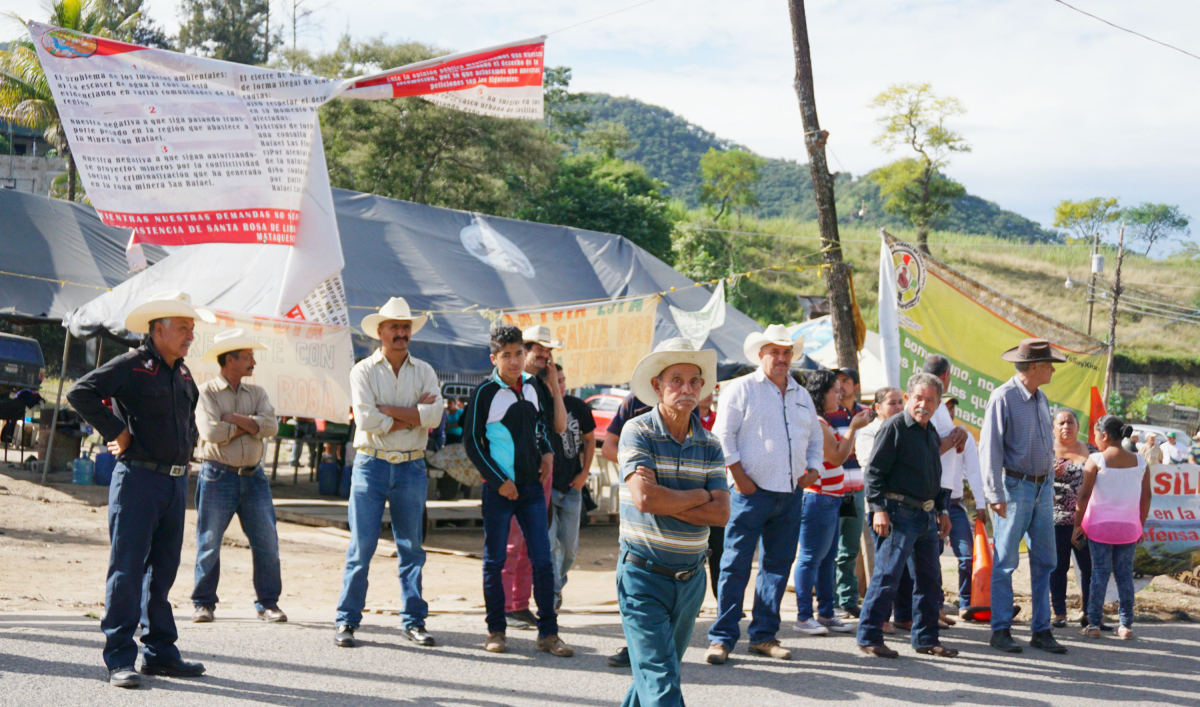
Guatemalan court keeps the brakes on Escobal
The Escobal silver mine is the third-largest silver mine in the world — dormant, for the moment, in the lush green hills of southeastern Guatemala. It lies in a bed of neighbouring corn, bean and coffee crops, as the high mountain range of Montaña Soledad Grande towers to the north, boasting a rich vegetation of oak, pine and cypress trees
At the heart of the legal debate over its license are the Indigenous Xinka people — a non-Mayan community whose traditional territory lies in southeastern Guatemala, near its border with El Salvador.
In July 2017, the country’s Constitutional Court suspended Minera San Rafael’s Escobal license after a local human rights organization alleged that the state did not adequately consult the Xinka people in advance of granting the license in April 2013.
Last month, the court stalled production further with demands for a third-party review of the environmental impact study and Indigenous consultation process undertaken by Guatemala’s government in advance of April 2013. It also requested new anthropological studies on communities around the Escobal mine that shed light on their current Indigenous populations.
“We are certainly disappointed with the continued delay in the case and the amount of time it has taken the Constitutional Court to request this information, but we are hopeful this means the Court is undertaking a serious review of the issues in this case…,” said Tahoe president and CEO Ron Clayton in a March 8 press statement responding to the court’s resolution.
Tahoe Resources declined to reveal to National Observer whether it, or its subsidiary, Minera San Rafael, undertook any Indigenous consultation before or after it acquired the Escobal mine from Goldcorp in 2010. But the company emphasized in an emailed statement that it is developing an Indigenous Peoples Policy this year, aimed at improving its engagement with communities in the countries where it operates.
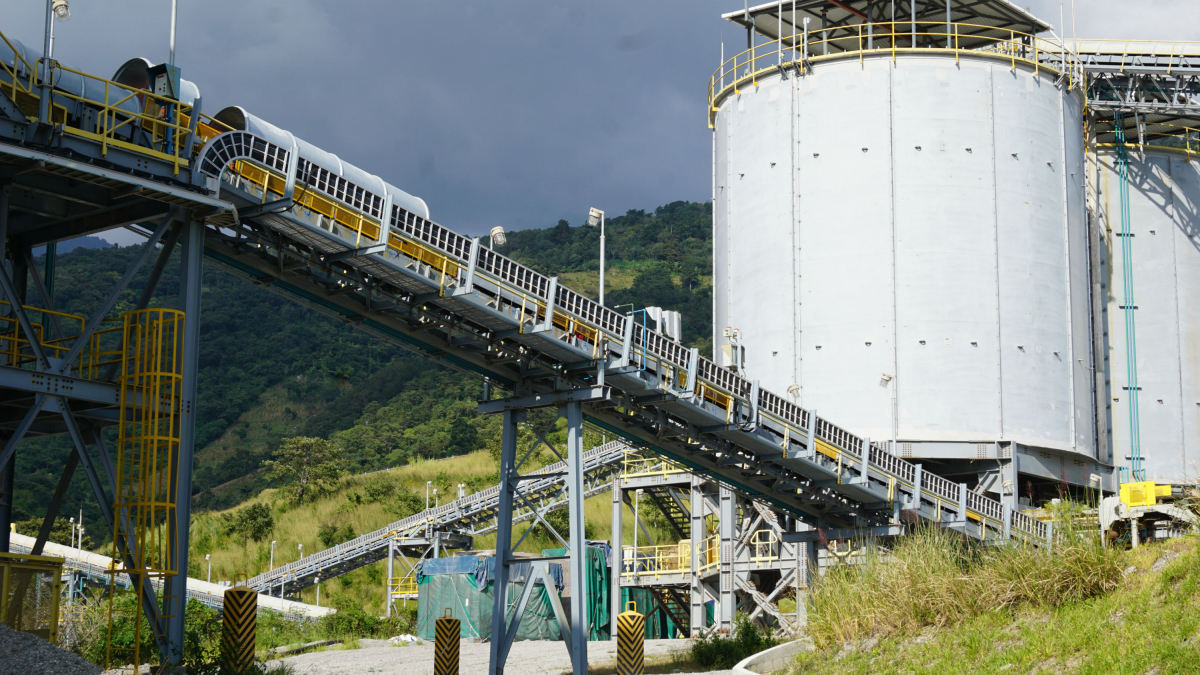
No Xinka here, say local miners
While the mine’s continued suspension is good news for those maintaining the Casillas blockade, according to Kelvin Jiménez, attorney for the Xinka Parliament, the court’s resolution also offends. No court has the right to doubt the self-identification of a people, he said in his own statement responding to the decision.
“It is not up to the Constitutional Court to decide if we, the Xinka people, exist or not. This is not a disputed fact,” wrote Jiménez, who is also an intervenor in the lawsuit. “…We exist and we have the right to free, prior and informed consent.”
More than 2,000 Xinka people from communities near the Escobal mine protested in Guatemala City on April 9 in response to the court's announcement. They demanded that the court shut down the Escobal mine permanently, and rejected in principle its request for information on whether or not their people reside in San Rafael las Flores — the municipality where the mine is located.
Guatemala has ratified the International Labour Organization’s Indigenous and Tribal Peoples Convention and supported the UN Declaration on the Rights of Indigenous Peoples, which enshrine the cultural, land and consultation rights of Indigenous communities.
An independent survey taken by the local Catholic Church determined that at least 6,000 Xinka people live in San Rafael las Flores — the only municipality to support the mine on paper. Thousands more live in the seven other municipalities around the mine, said Jiménez.
But according to employees of Minera San Rafael — interviewed by National Observer in October 2017 — the presence of Xinka people near the mine is a myth. Speaking on the condition of anonymity for fear of reprisal in their communities, they said the Xinka exist only elsewhere in southeastern Guatemala.
“I think people are easy to manipulate,” said a production worker who lives in San Rafael las Flores, through a translator. “As workers of the mine, we know the facts. This is not Xinka land… it is territorio normal. There are Xinka people, but not here.”
“There are no Xinka people in Casillas,” added another, speaking from Minera San Rafael’s offices outside the mine. “The priest made it up. In Jumaytepeque, there are some.”
National Observer spoke with more than a dozen employees of the Guatemalan subsidiary, who described experiences of harassment and discrimination for their ties to the mine. They accused members of the resistance — including those who guard the Casillas blockade — of door-knocking to recruit new members, enticing them with food and money to join, and making up instances of violence and brutality against them in order to gain sympathy for their cause.
The staff had never heard of any human rights abuses taking place at, or in connection to the Escobal mine, and if they had, assured that they would never work there.
When it comes to the Escobal mine, however, opposing narratives are common.
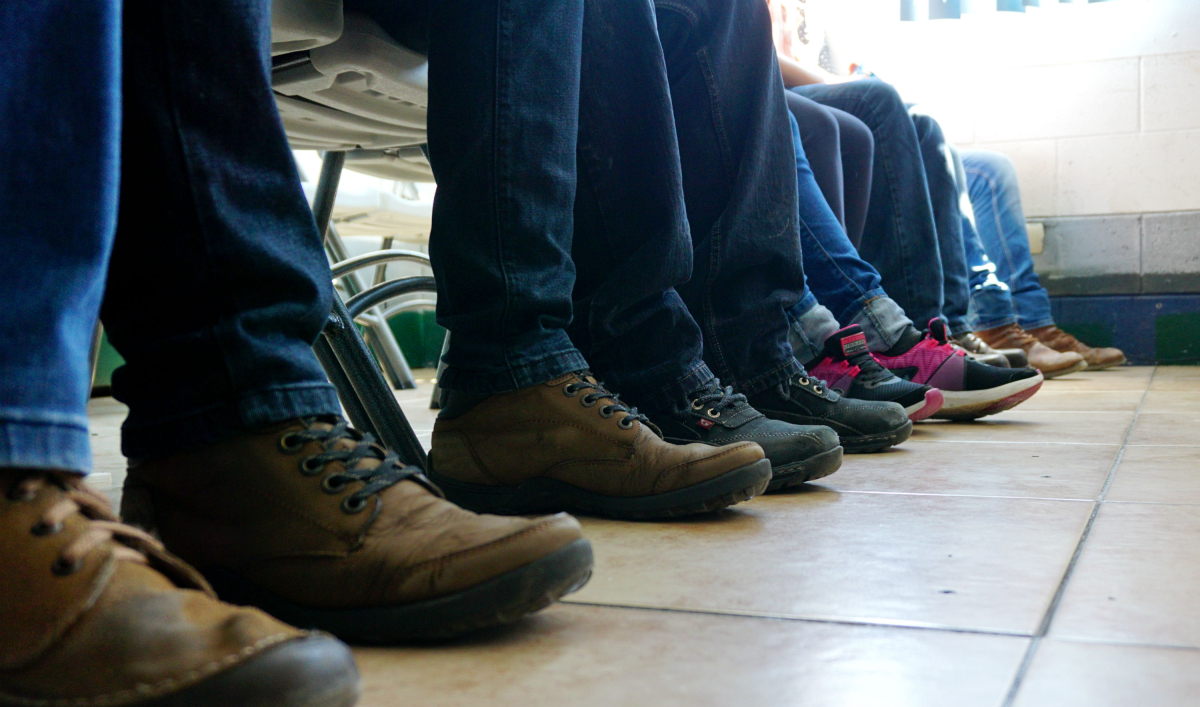
Difficulty verifying the facts
Olinda García was just 22 years old when she was raped — allegedly by two Guatemalan police officers — on Feb. 9, 2014 near her home in Jalapa, one of the regions impacted by the mine. It was around 7 p.m. and she was driving with a member of the resistance.
He was arrested and taken away, and García was left battered on the side of the road. She’s still waiting for her day in court, and today, has joined the resistance movement herself.
“It’s been very difficult for me, but I thank God because it made be stronger, braver,” she said, choking back tears during a meeting of women human rights defenders in Mataquescuintla on Oct. 26, 2017. “We’ve been discriminated against in our communities. We were pointed out, threatened, ostracized, but here we are.”
There is no evidence linking the attack on García to anti-mining activities, but such is often the case in a country where corruption runs rampant, violence against activists is common, and prosecutions for such crimes are rare.
Jerez Audon, a Guatemalan National Civil Police chief stationed in Casillas, confirmed that while conflicts do occur between resistance members and police officers, the police do not take orders from mining companies or their subsidiaries, and support the right to peaceful protest. Interviewed by National Observer during a protest against the mine on Oct. 26, 2017, he said his officers never use tear gas or other weapons while demonstrators remain peaceful, and only intervene when the Casillas blockade interferes with legally permitted mining activities.
“The policemen here do not support the mine,” Audon insisted, a handgun and several cartridges holstered at his side. “People here misunderstand our job.”
Opponents of the project however, dispute such claims, and described disturbing clashes with police, unknown attackers and mining security personnel — one of which is the subject of a current court case in Canada. Tahoe is currently being sued for damages in the Supreme Court of British Columbia by the victims of a rubber bullet shooting that took place during a protest at the mine on April 27, 2013.
The victims allege they were shot by mining security personnel hired by Minera San Rafael, resulting in claims of negligence and battery against Tahoe Resources. The company vigorously denies that it perpetrated the act in any way, shape or form, and has settled out of court with three of the seven plaintiffs.
The Xinka protest on April 9 took place just days before the four-year anniversary of another infamous, unresolved case of violence: the murder of 16-year-old Topacio Reynoso, who was shot dead on April 13, 2014 while travelling with her father Alex. Reynoso and her father were both vocal and organized opponents of the mining project, and while Alex survived the attack by unknown gunmen, young Reynoso succumbed to her injuries.
Police investigations into the murder have not yielded prosecutions to date, and while the motive behind the attack remains a mystery, it's widely believe Reynoso and Alex were targeted for their anti-mining activism.
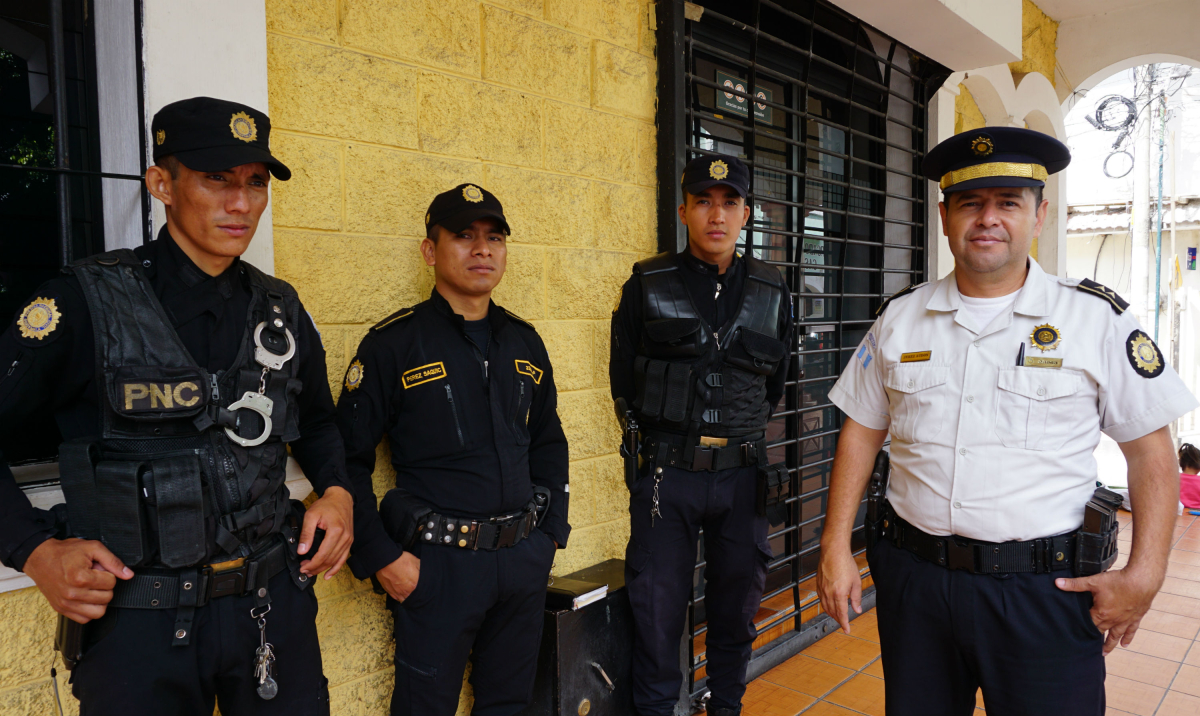
‘That’s not our role,’ says Tahoe
In a December 2017 interview, Tahoe’s vice-president of corporate affairs, Edie Hofmeister, said she believes the company has “acted responsibility at (a) very high level of commitment to human rights conduct at the mine.” Minera San Rafael, she explained, has engaged regularly and thoroughly with members of the resistance who are interested in constructive dialogue.
The company has invested substantially in local businesses, women’s co-operatives and schools, she added, and in additional quarterly human rights training for local police and contracted security at the Escobal mine.
“It’s a great success story of how you can take a rural area with very little employment and a number of the population fleeing to the United States for jobs and things like that — and no banks, no restaurants, not hotels — and really transform it into a zone of prosperity by infusing development dollars into that mine...," said Hofmeister.
"...Ultimately about $1.7 billion that was invested in that mine, and I think you could see in the town and the high tech mine itself, kind of the benefits that have resulted from that."
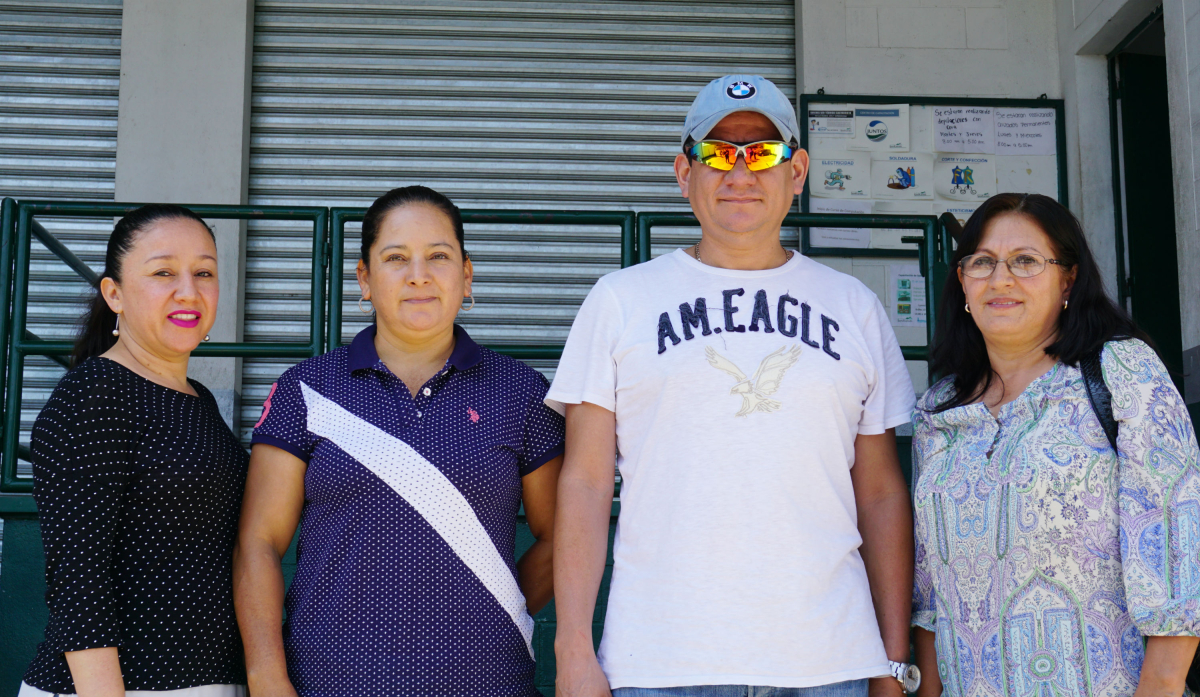
Asked however, what steps Tahoe Resources had taken to verify allegations of violence from resistance members personally — beyond the actions of Minera San Rafael — Hofmeister said, “that’s not our role.” In her own trips to Guatemala, she confirmed that she has only ever met with the mine’s employees.
“Tahoe’s role as a parent company is to provide guidance and stay informed about what is happening from an operational standpoint,” she explained. “Our people on the ground are very engaged in meeting with any protesters who are interested in meeting.
“We’ve met with dozens and dozens of people who are opposed to the mine, for example, but again, that’s the role of the Minera San Rafael corporate social responsibility and sustainability group.”
Broadly speaking, Hofmeister said a subsidiary should be held responsible for its own acts, rather than the parent company. When it comes to allegations of human rights abuse, she said she believes Minera San Rafael’s staff — including those National Observer spoke with — “are just as well informed” as members of the resistance, despite opposing narratives circulating the mine.
Meantime, opponents of the project living in its shadow continue to tell of increased seismic activity, ruined crops and chemicals in their water during Escobal’s production; arrests without charge, undue force from local police and other methods of intimidation.
Lisa Rankin, a co-ordinator for the Maritimes Breaking the Silence Network, has lived in Guatemala for seven years, and said she’s seen many a friend and colleague beaten, arrested and incarcerated for their resistance to local extractive projects — including the Escobal mine.
Breaking the Silence is a voluntary network that engages in advocacy, lobbying, and human rights accompaniment in support of Guatemalans fighting for political, social and economic justice.
“It’s our job to be present for the important moments that happen in the communities so they don’t feel alone and there are international eyes observing what’s happening and making sure the rest of the world hears what’s going on," she told National Observer in Guatemala City.
"It’s really frustrating when you know the truth about what’s happening, you hear the truth, and sometimes it feels like people aren’t listening. Often, we’ve tried to be in touch with shareholders to let them know what’s happening in the communities and we don’t see a response to that.”
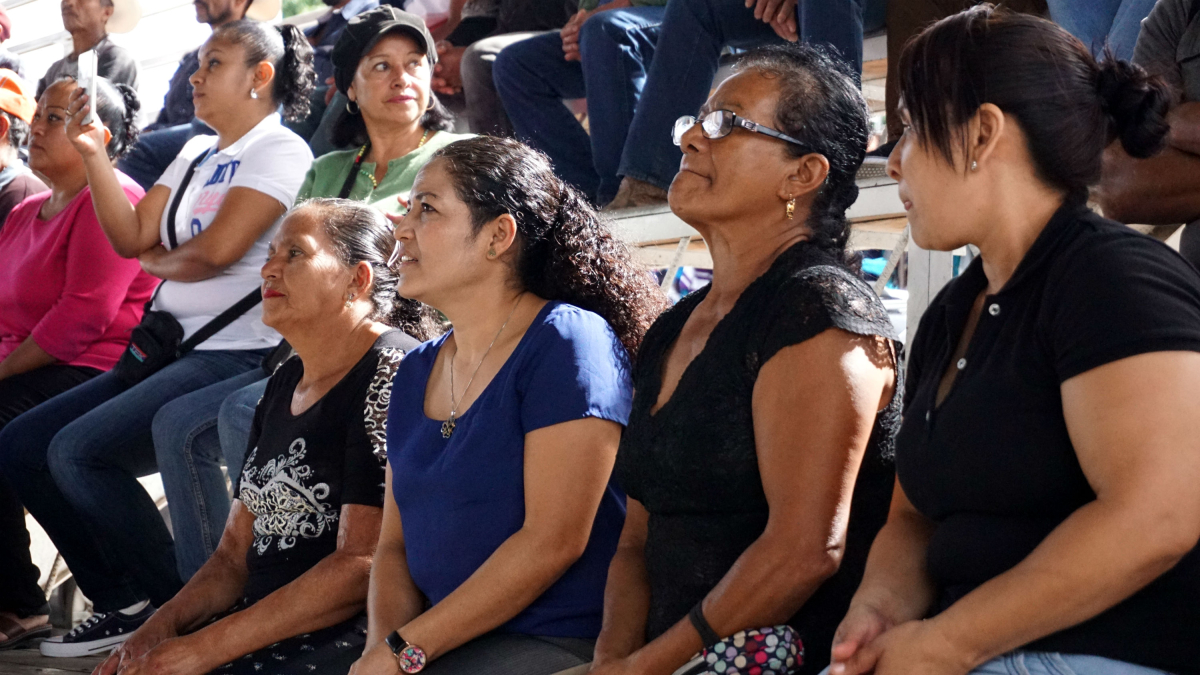
New ombudsperson could intervene in Guatemala
The new watchdog office introduced this year by Prime Minister Justin Trudeau's government could, theoretically, examine the disturbing stories of violence and environmental harm that surround the Escobal mine in Guatemala.
In January, Trudeau's International Trade Minister François-Philippe Champagne promised to appoint a new ombudsperson to lead the office and investigate allegations of human rights abuse at Canadian businesses operating abroad. One month later, Finance Minister Bill Morneau announced in his 2018 budget that the office would get $6.8 million over six years to launch and pursue its operations.
As soon as that office is operational, the minister confirmed, it will start with cases in the extractive and textile sectors, which include Canadian mines.
The department is still in the process of developing the mandate of the ombudsperson, who will serve a term of up to five years. Asked whether past grievances at the Escobal mine — dating as far back as 2010 — will be eligible for an investigation by the ombudsperson, a spokesman said the priority will be on grievances whose impacts are still being felt.
"The priority focus of the ombudsperson, once in place, will be on addressing allegations of human rights abuses that are current or where past abuses and harms caused as a result, are continuing," said communications advisor Jesse Wilson in an emailed statement.
"Once the ombudsperson's office is in place, the office website and communication products will publicize a process for submitting allegations of human rights abuses arising from Canadian company operations abroad."
Wilson was not able to shed light on how the ombudsperson will determine whether "harms caused" by a Canadian mine are "continuing" at this early stage in the office's development. But he emphasized that if there are human rights issues that require immediate attention, the public may file concerns with the current remediation mechanism — the National Contact Point for the OECD Guidelines for Multinational Enterprises.
Wilson could not provide a precise timeline on when the office will be up and running, other than "as soon as possible."
Tahoe Resources has welcomed news of an upcoming ombudsperson, hailing it as a "positive step forward for the Canadian mining industry" in an online statement. The company has said it looks forward to working with the new appointee, and that "independent oversight will strengthen best practices, ensure transparency," and "promote safe and responsible" mining operations around the world.
Meantime, international civil society groups have aligned themselves with the Xinka people, whose fight for recognition and the right of consent is ongoing in Guatemala's Constitutional Court.
Jen Moore, Latin America program co-ordinator for MiningWatch Canada, said it's a complicated case that she hopes to see settled in favour of the Xinka, who have the right to self-identify as Indigenous and govern their own lands. Moore has followed the controversy of the Escobal mine since 2013, and has visited Guatemala roughly four times since then on behalf of the Ottawa-based NGO.
"Anything less than a process that would lead to consent and allow communities and the Xinka people a decisive say over what happens on their land and territory will fall short of the sorts of decisions we hope to see eventually," she told National Observer on April 11. "But we know there's a high bar being set by the Xinka people and the other communities around the Escobal mine that they're fighting for in the long-term."
Editor's Note: Elizabeth McSheffrey travelled to Guatemala with the Nobel Women's Initiative and Just Associates, which provided translation services for most interviews. National Observer hired an independent translator for interviews with Minera San Rafael.

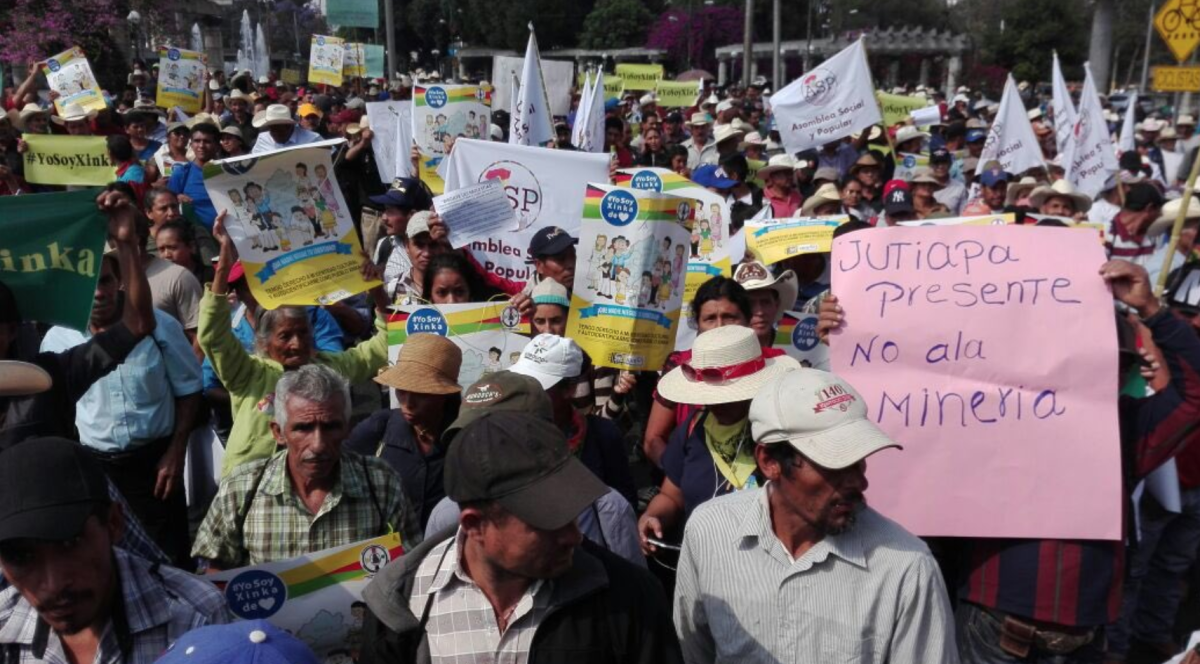


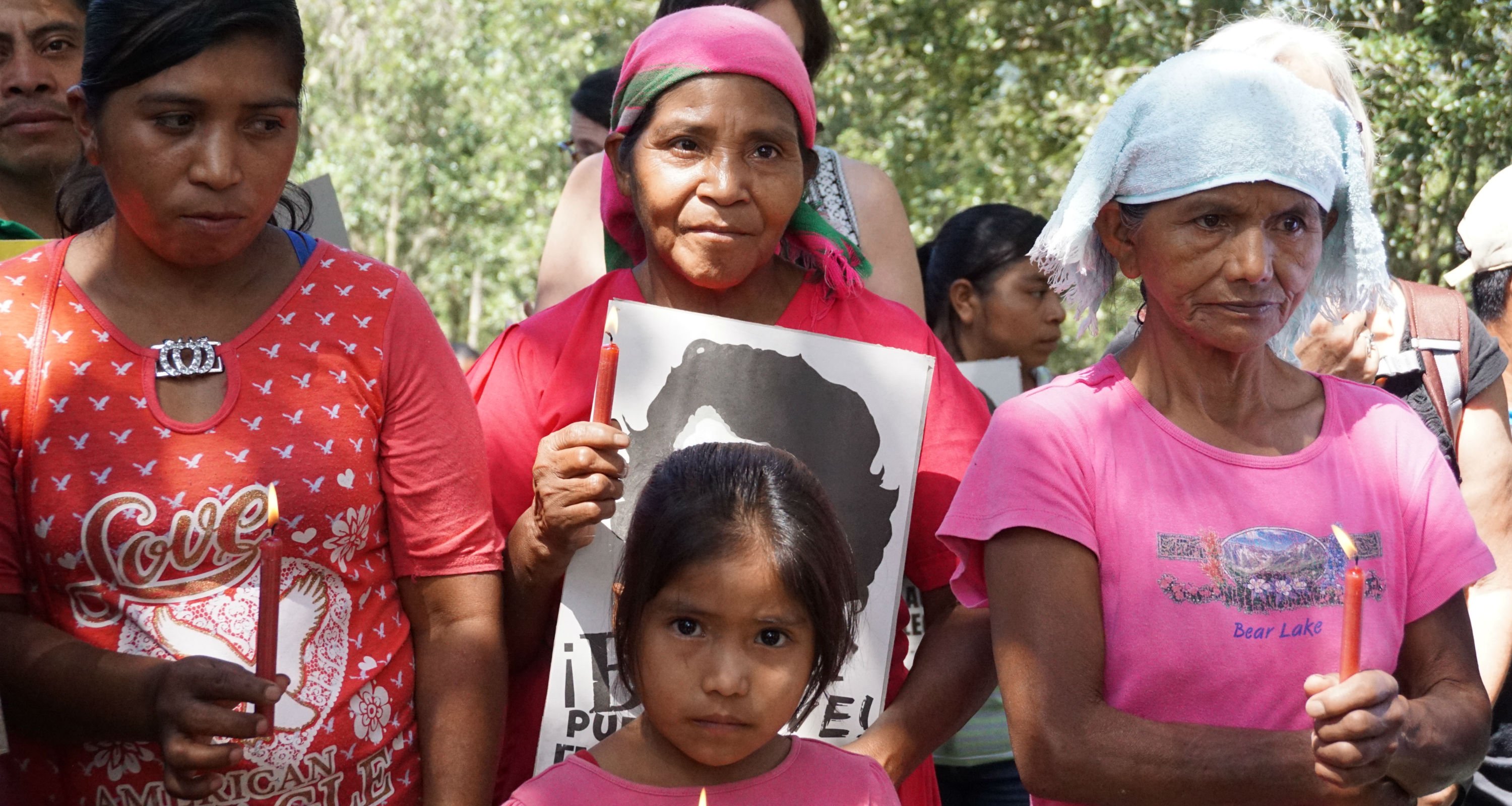

Comments